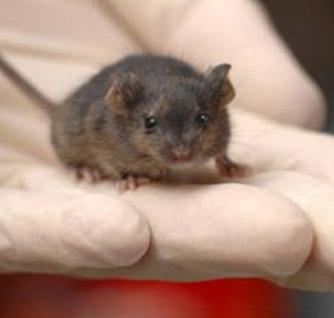The pros and cons of animal experiments; an essay on ethical issues
Author: Emmanuel Loeb
As an experimental pathologist, I deal on a daily basis with tissue samples that were harvested during a controlled animal experiment, performed as part of the development process of new drugs and devices. In my opinion, a proper ethical approach and an open discussion regarding laboratory animal experiments that are performed/carried out for human benefit, is essential for the moral basis of our professional legitimation in the field of life science research. Therefore, I have chosen to confront myself with this difficult topic.
The animal trial as an ethical problem:
The ethical aspect of animal trials is an ancient debate which has already been discussed in a broad perspective during the ancient Greek period. It arises from the natural position of mankind towards the animal as we are obliged to take responsibility for human manipulations with animals.
The intention of an experimental animal model usage, conducted by experts, is in principle problematic in terms of its ethical context. Actually, the manipulations in order to mimic a certain pathological condition or human disease are performed on a complete healthy animal. However, the experimental animal model is established in order to answer major issues regarding the safety and efficacy of the tested medicinal products before their use in humans. Compared to a slaughtered cow, this process is more complex creating serious health problems, which might be accompanied with pain and suffering for the animal.
The rate of experimental animal models stands on 0.04% out of the amount of animals that are annually being killed by humans. Nevertheless, this relatively small amount does not provide a good argument for its aim. Comparing the situation of an individual animal that is slaughtered for human food consumption to a rodent that is sacrificed for medical research, there is a marked difference. The case of the rodent is much worse regarding the severity of pain and suffering compared to a slaughtered cow.
This is why the field of utilizing animals for experimental models is a very problematic ethical conflict of the human nature – taking into account the health and wellbeing of humanity against pain and suffering of the animal.
The scientific community is faced against the above described conflict and is looking for ways to overcome it without harming the humanity. There is an increase focus in developing artificial trial systems (in vitro) that will be able to replace the animal model. In some cases it can be achieved and helps to reduce the number of animal experiments. In other cases, in vitro systems are not efficient as an alternative for the whole animal usage, due to the complexity and the Involvement of complete body systems. This includes experiments that are aimed to explore tissue structure or nutrients, animal metabolism, systemic pathological conditions, and other factors that are difficult to be achieved and measured in an artificial system. That is to say that in many situations the animal model is a must and cannot be replaced, for example in toxicological studies (maximum tolerate dose) prior to the administration of the developed drug to humans (clinical trials).
The relevance of animal experiment for drug development:
In order to evaluate the purpose of animal experiments in general we need to look at the whole picture and to summarize the pros and cons arguments regarding the usage of animals for experiments. Considering all these arguments, it is obvious that there is a need to establish a system that will allow the performance of only necessary and un-replicable experimental animal models under controlled conditions, that will be sufficient to cover the medical necessities.
The solution:
In order to fulfill the necessity of controlled experimental animal studies, various regulatory guidelines and laws have been developed all over the world.
An experimental animal model has to be confirmed and approved by an “ethical committee” which is functioning in all the countries that are performing animal studies. The committee is composed of a heterogenic team of professionals and non-professional. The committee review on the suggested study is taking into consideration the importance of the tested product and its contribution to human health, the necessity of the suggested animal model and its replaceable alternatives, as well as the animals wellbeing. The approval of the study can be achieved only after the researcher has answered the committee’s requirements, including: reducing the animal number, adding treatment for pain relief and to alleviate the suffering. The committee has the authority to change studies protocols or even to reject certain studies.
In Israel the law does not permit animal experiments but the committee has a mandate to approve it. There is a continue debate around the issue of animal experiments between the researchers and certain groups and individuals. A compromise is only possible through a dialog, knowledge and education.
For those that are interested in this topic I recommend the book titled “Animal alternatives, Welfare and Ethics” by Professor L.F.M van Zutphen, my teacher during my studies in Utrecht University.

